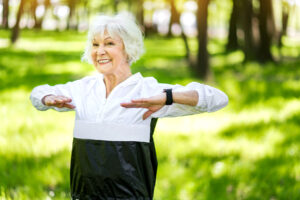What To Do When Legs Swell
Lower leg swelling, often known as “lower extremity edema” in medical language, is a common condition among the elderly. Many older people get swollen feet, especially in the afternoon and evening. You’re probably asking why this bothersome condition persists.
The good news is that most of the time, it is irritating but not hazardous. Swelling in the feet, ankles, or lower legs, on the other hand, might indicate a new health concern or a deteriorating illness. Even if it’s “harmless” and not caused by a serious medical condition, edema may be a significant risk factor for skin deterioration and limited mobility in older people. Here are some ways that a senior can battle leg and feet swelling. Each tip is something you can help with, or something elder care can help with.
Battle Leg Swelling With Elevation

Elder Care Charlotte, NC: Leg Swelling
When it comes to leg swelling, gravity is not on our side. There is a potential that your legs may enlarge if you sit or stand with your legs in a dependent posture. As a result, elevating the legs might help to reduce edema. Elevation aids in the return of fluid and blood to the heart by using gravity to your benefit. Limit the amount of time you sit in one location for lengthy periods.
Use Compression To Help With Swelling
Thankfully, compression has gone a long way since our grandparents’ day. Compression stockings may be colorful, flamboyant, and spotty, or they might resemble trouser socks and pantyhose. A well-fitting pair of compression stockings may be invaluable. Compression stockings assist the blood return to the heart by gently compressing the legs. Compression stockings should be placed first in the morning and removed in the evening.
Exercise Can Help a Senior Battle Swelling
Swimming, walking, and biking are the most effective exercises for reducing leg edema. Because the water compresses the whole body, swimming is an excellent kind of exercise for edema. This allows fluid to move from the tissues to the vessels and return to circulation. Walking and biking are two more important kinds of exercise. They make use of our calf muscles, which aid in minimizing leg swelling by returning blood to the heart.
Focus on Healthy Eating Habits as a Senior
Avoiding salty or highly processed meals with high sodium content may help decrease edema. A well-balanced diet rich in proteins, fruits, vegetables, and whole grains may assist in minimizing fluid retention and edema. Furthermore, consuming the proper amount of water daily offers several health advantages and may aid in edema management. The typical adult guy should consume 13 cups of fluids each day. A typical adult female should drink 9 cups of fluids every day.
Find Ways to Lose Weight Healthily
Maintaining a healthy weight reduces edema by relieving strain on the veins in the legs. The more weight imposed on the legs by the abdomen/upper body, the more difficult it is for fluid to leave the tissues and blood to return to the heart. A healthy weight may also aid in the management of many other medical problems that produce edema or swelling.
Use Diuretics When Necessary
Diuretics may be found in nature or prescribed. Diuretics aid the body in eliminating extra fluid. Natural diuretics may be found in beverages such as coffee and tea. Diuretics may also be found in watermelon, celery, berries, garlic, and bell peppers. Certain plants may also function as diuretics. Certain medical disorders, such as heart failure, excessive blood pressure, and renal dysfunction, need the use of prescription diuretics. It is critical that you only take supplementary diuretics after consulting with your doctor.
If you or an aging loved one are considering in Elder Care in Charlotte, NC, please call the professional staff at Caring at Heart today at (704) 379-7510. Serving Charlotte, Statesville, Ballantyne, Mooresville, Huntersville, Matthews, Concord, Gastonia, Pineville and Indian Trail
- Seven Ways to Get a Better Night’s Sleep - December 22, 2022
- What Services Are Offered by Elder Care Aides? - December 14, 2022
- Post-Hospital Care Helps Seniors Recover At Home - November 21, 2022

